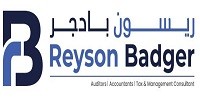calculation of taxable income under corporate tax

HOW TO CALCULATE TAXABLE INCOME UNDER CORPORATE TAX IN UAE
WHAT IS CORPORATE TAX?
Corporate tax (CT) is a type of direct tax assessed on a corporation's or another entity's net profit derived from its operations. In certain other countries, the term "corporate tax" also refers to "corporate income tax (CIT)" or "business profits tax."
For financial years beginning on or after June 1, 2023, the UAE will implement Corporate Tax on corporate earnings at a rate of 9%. UAE Government officially announced the corporate tax implementation on January 31, 2022.
The establishment of a federal CT regime aims to support the UAE's strategic goals. They also encourage companies to establish and grow operations there.
WHAT IS THE BASIS OF TAXATION?
The corporate tax system in the UAE is based on residence, taxing only the non-residents' company revenue that is derived from the UAE and not their worldwide earnings.
Based on the location of the business's incorporation or effective corporate tax management and control, one can identify where a company is located for corporate tax purposes.
For non-residents, taxation will vary according to whether they establish a permanent establishment in the UAE and if they receive revenue from the UAE (which is subject to corporation tax being subject to withholding tax at 0%).
So basically, it can all sum up based on resident and no resident with conditions as follows:
- Residents:
- A resident of the UAE is a legal entity established in the UAE or a foreign corporation that is effectively managed and controlled in the UAE.
- Legal people residing in the UAE are taxed on their worldwide income.
- Non-residents:
- Taxable income from non-residents' Permanent Establishments in the UAE shall be subject to UAE CT.
- Article 5 of the Organization for Economic Co-operation and Development Model Tax Convention will serve as the foundation for the idea of a PE under the proposed UAE CT framework, specifically
- Fixed place of the business test
- Dependent agent test
The exemption is available for Investment Managers subject to conditions.
HOW TO CALCULATE TAXABLE INCOME IN COMPLIANCE WITH CORPORATE TAX LAW IN UAE?
Section 5 of the proposed law includes the rules and procedures for calculating taxable income under UAE corporate tax. To reduce complexity and compliance expenses, the rules and regulations keep simple for the advantage of UAE taxpayers.
The net profit/loss shown in the financial statement for the relevant financial year is the starting point for calculating the taxable income of UAE corporate taxpayers. In short, the net profit/loss is the difference between a corporation taxpayer's revenue and spending.
UNDERLYING ASSUMPTIONS
- The accounting net profit (or loss) as reported in the financial statements of an organization with minimal book-to-tax adjustments serves as the starting point for calculating taxable income.
- The tax period should correspond to the financial accounting period.
EXEMPTED INCOME
The income from some sources is exempt from taxation. They are:
- PARTICIPATION EXEMPTION:
Dividends paid by a foreign subsidiary and capital gains on the sale of shares in a foreign firm are exempted if the shareholding is at least 5% and the subsidiary is subject to CT at least 9%.
Domestic dividends from UAE firms, including dividends from Free Zone Persons, are exempt from Corporate Income Tax.
In other words, if a Free Zone Person is a holding company and the majority of its revenue comes from shareholdings in subsidiary businesses that satisfy the participation exemption criteria, capital gains on the sale of shares in that holding company will be exempt.
- FOREIGN BRANCH EXEMPTION:
In cases when a UAE firm has a foreign branch, the option to either
- claim a foreign tax credit for taxes paid abroad, or
- claim for an exemption for revenues from foreign branches.
INTEREST CAPPING RULE
It is advised that group firms only get interest payments of up to 30% of their earnings before interest, taxes, depreciation, and amortization.
Regardless of the 30% limit, a fixed payment is deducted. Banks, insurance companies, and several other regulated financial services institutions, as well as enterprises run by natural people expressly, excludes from these rules. Different interest-limiting criteria can permit the combined organizations.
In addition, passing the arm's length requirement, interest payments amongst group firms also need to establish the commercial reasons for obtaining the loan.
LOSSES
Businesses may offset losses of future periods' taxable income up to a maximum of 75% of each subsequent period's taxable income.
If the same shareholder owns at least 50% of the share capital, tax losses may be carried forward forever.
If ownership changes, tax losses could still be admissible as long as the new owners continue to operate in the same or a closely related industry.
NON-DEDUCTIBLE EXPENSES:
Tax deductions only allow for 50% of expenses made to entertain clients, shareholders, suppliers, and other company partners since these costs frequently involve non-business and personal components.
Similarly, some expenses not eligible for a tax deduction are the payment of administrative costs, fines, recovered VAT, or gifts to organizations that are not recognized charities or public benefit organizations.

